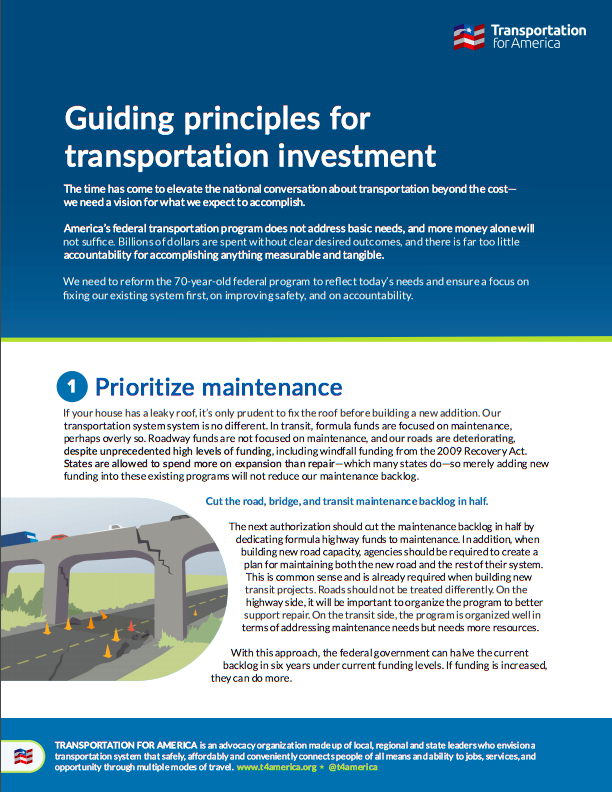House committee passes a new kind of transportation bill: the INVEST Act
After two days of debate, the House Committee on Transportation & Infrastructure passed its proposal for long-term surface transportation policy last week. The INVEST Act starts the work of updating our broken federal transportation program by prioritizing maintenance, safety, access, climate, and equity. T4America thanks Chairman Peter DeFazio for leading this effort and we urge the House to pass this modern bill next week.
Improving safety by making it a priority throughout the INVEST Act
As noted in our scorecard, the House’s INVEST Act transportation bill takes important strides to make safety a priority, from the inclusion of new performance measures all the way down to making changes with how agencies set speed limits. Here are five things to know.
Here’s how the new House bill prioritizes getting people where they need to go
It’s surprising, but the current federal transportation program doesn’t actually require that states spend federal funds to improve people’s access to jobs and services. This is why the bulk of transportation funding goes to increasing vehicle speed, a “goal” that fails to help many people get where they need to go. The new transportation proposal from the House of Representatives fixes that with a powerful new performance measure and grant programs.
UPDATED: Amendment to the House’s INVEST Act *will* close the repair loopholes
UPDATE: This vital amendment to strengthen the repair provisions in the bill was approved. Read more.
Amendments we’re tracking to the House transportation bill
The INVEST Act could be a turning point for the federal transportation program, almost hitting the mark on Transportation for America’s three principles for transportation investment. But a few amendments could make—or break—the bill. Stay up to date here.
House transportation bill goes big on climate
House transportation leaders introduced legislation to update our national transportation program to address climate, equity, safety and public health. Climate advocates and climate leaders on the Hill should recognize the strides taken with this proposal from Congress and fight to protect those changes in the bill.
The House bill needs some changes to make repair the number one priority
The House’s new INVEST Act made a strong effort to prioritize maintenance, but there are still loopholes that can allow states and metro areas to avoid the legislative intent of a real, concrete focus on repair first. Here’s a run down on our concerns with the repair provision and how it could be strengthened in next week’s markup in the House transportation committee.
House builds on the FAST Act’s change to provide better and more balanced passenger rail service
Expanding and improving our nation’s passenger rail network to bring better, more reliable passenger rail service to more people is one of the best ways to improve access for millions of Americans in big urban areas and small rural ones alike. The House transportation bill takes some important steps to balance passenger rail with the rest of our transportation investments. Here are the details.
CDC quietly revises their guidance to encourage people to use transit safely
Two weekends ago the CDC quietly revised their guidance for using public transportation after an outpouring of criticism from Transportation for America, NACTO, TransitCenter, the American Public Transportation Association, and others that the CDC was contradicting years of their own public health guidance that encouraging more driving incurs massive public health costs in pollution, respiratory illnesses, obesity, and preventable traffic deaths.
Nine other important things to know about the House’s transportation bill
Last week the House Transportation and Infrastructure Committee released a multi-year transportation bill that starts to connect transportation spending to accomplishing measurable outcomes, including our three core principles. Here are seven other important other things to know about the House’s introductory effort to replace the FAST Act, which expires this December.





